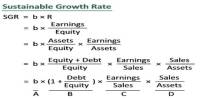Operational auditing is a systematic examination of operational effectiveness, efficiency, and economy. Its goal is to evaluate the efficiency, effectiveness, and cost-effectiveness of these processes and identify areas for improvement. A future-oriented, systematic, and independent evaluation of organizational activities is what operational auditing is. The primary goal of an operational audit is to determine whether a company is maximizing its resources and meeting its operational goals.
Financial data may be used in operational audits, but the primary sources of evidence are operational policies and accomplishments related to organizational goals. Internal auditing is expanded into operational auditing.
Auditors examine various aspects of an organization’s operations during an operational audit, such as production processes, inventory management, quality control, cost management, policy and regulatory compliance, risk management, and overall operational performance. The audit process typically involves the following steps:
- Planning: The audit objectives, scope, and methodology are defined at this stage. Auditors collect information about the operations of the organization, such as its processes, policies, and key performance indicators (KPIs).
- Fieldwork: Auditors collect and analyze data pertaining to the operations of the organization. This may include document review, employee interviews, process observation, and performance metric analysis. The goal is to evaluate the efficacy and efficiency of the organization’s operational activities.
- Evaluation: Auditors evaluate the findings from the fieldwork against established benchmarks, industry best practices, and internal standards. They identify areas of non-compliance, inefficiencies, weaknesses, and opportunities for improvement.
- Reporting: The audit findings and recommendations are documented in an audit report. The report highlights the strengths and weaknesses of the organization’s operations, identifies potential risks, and provides recommendations for enhancing operational efficiency and effectiveness.
- Follow-up: Management reviews the findings and recommendations after the audit report is issued. They create action plans to address the identified problems and make improvements. Subsequent audits may be conducted to assess how far the recommended changes have been implemented.
The Institute of Internal Auditors (IIA) defines operational audit as a systematic process of evaluating an organization’s effectiveness, efficiency, and economy of operations under management’s control and reporting the results of the evaluation along with recommendations for improvement to appropriate persons.
An operational audit’s purpose is to provide insights into an organization’s operations and to assist management in making informed decisions to improve efficiency, reduce costs, mitigate risks, and improve overall performance. Internal auditors within an organization or external audit firms hired specifically for this purpose can conduct it.
















